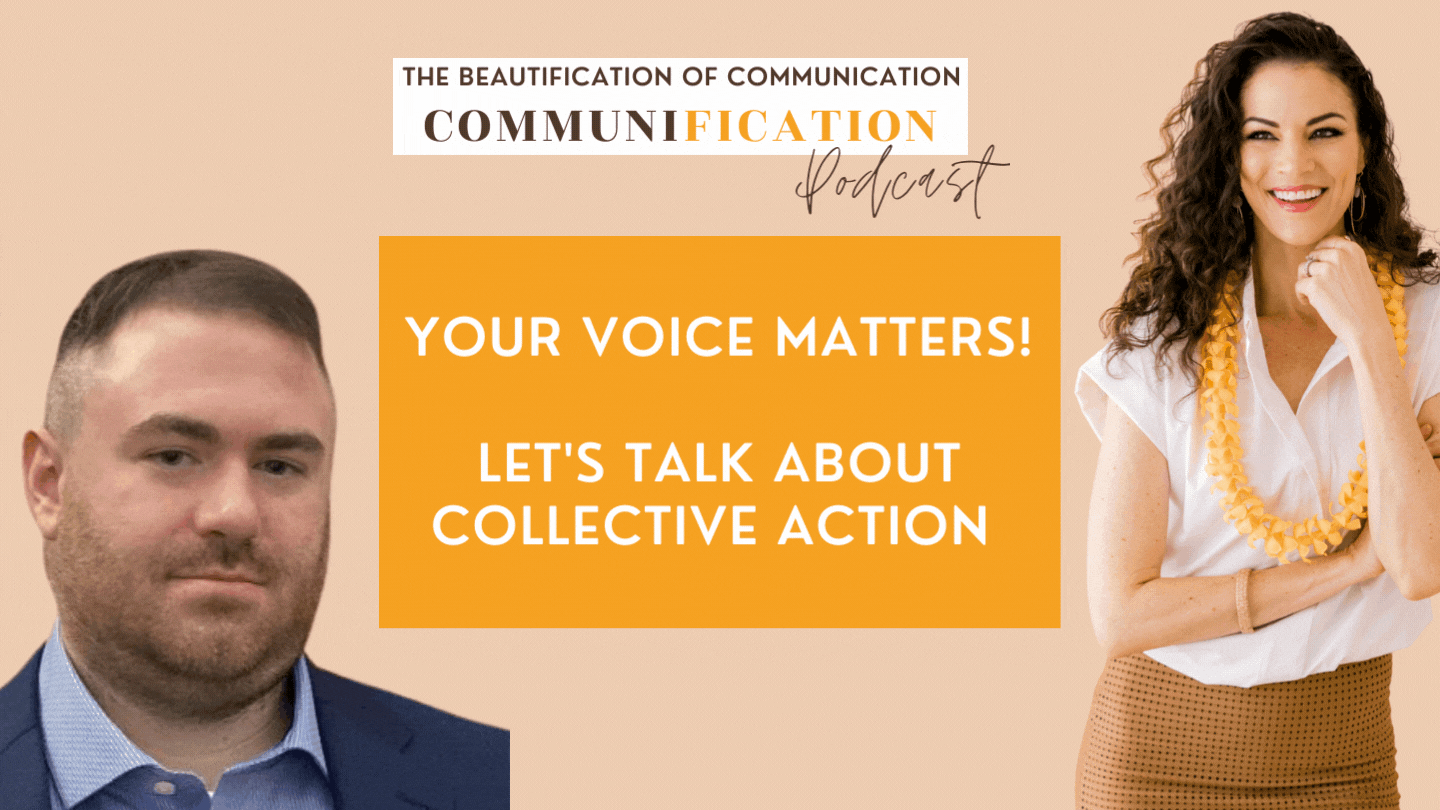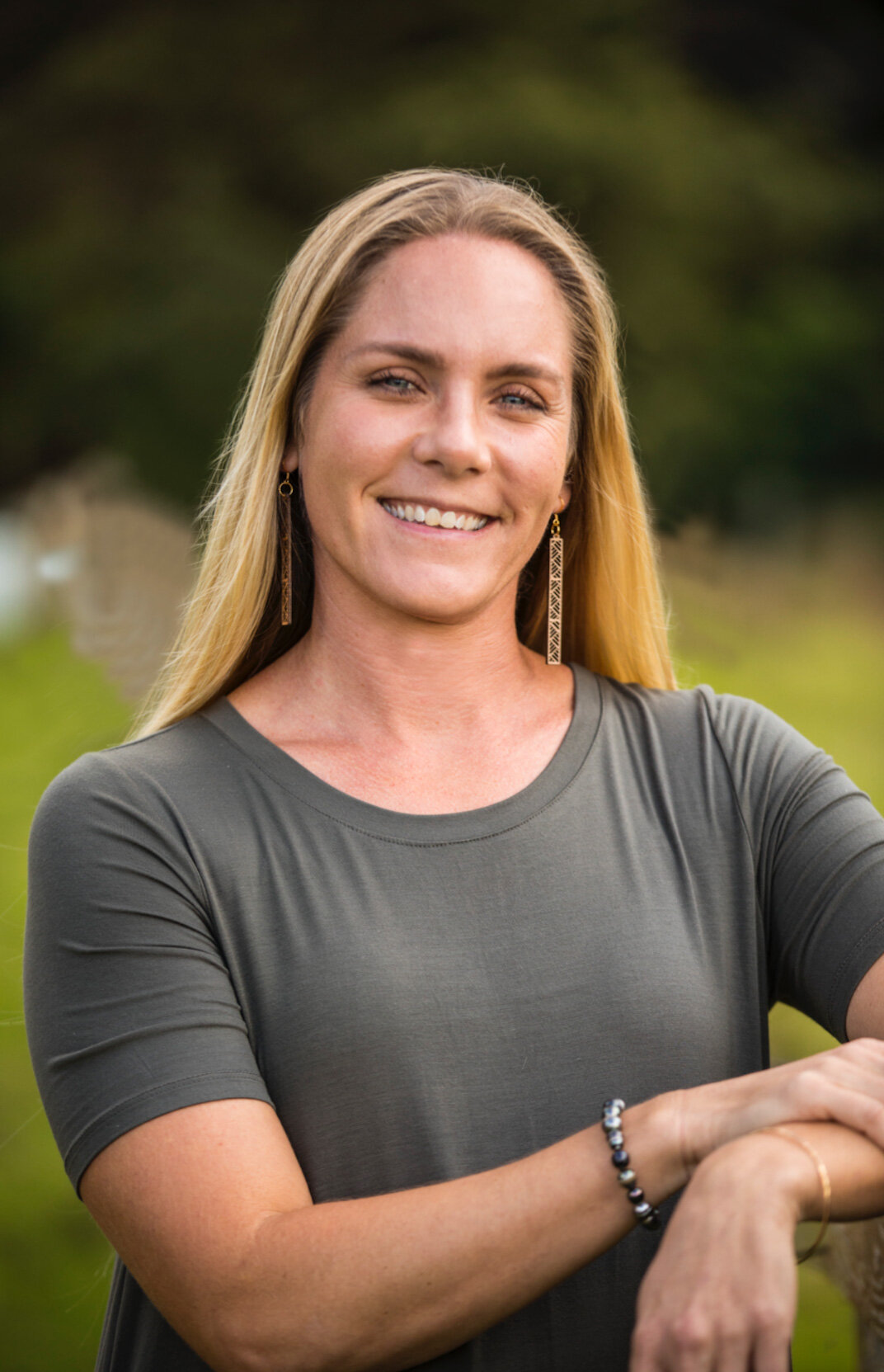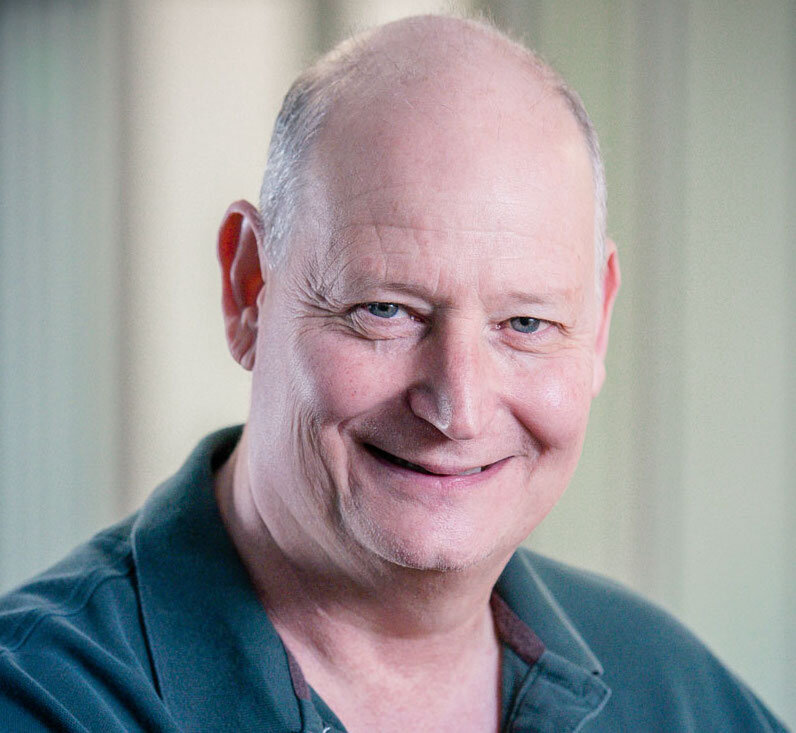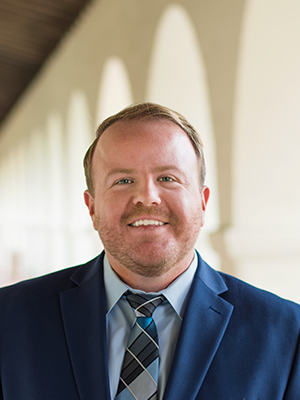Ep. 18: Your VOICE matters! Let's talk about collective action- Dr. Ian Hawkins, Part 2
Below you will find the show notes for “Episode 18” of the Communification Podcast.
Mahalo for listening! Welcome to the ‘ohana!
Mahalo to all of Malika’s Instagram followers for watching her reels! The reels bonus has gone to the Maui Food Bank the last few months and is a part of this episode’s pre-roll giveback program!
Main takeaways
What is slacktivism?
Does online collective action help or hinder boots on the ground activism?
The shocking research results on white nationalist propaganda
How we can avoid getting sucked into the echo chamber
How we can help the causes that really need it
Time codes
[05:15] SLACKTIVISM
[07:00] QUESTION FROM SUMMER STARR: DOES ONLINE ACTIVISM TRANSLATE TO A DECREASE IN OFFLINE ACTIVISM? AND IF SO, HOW DO WE REMEDY THAT?
[09:30] DR. HAWKINS TALK ABOUT HIS RESEARCH ON HOW WHITE NATIONALISTS USE SOCIAL MEDIA
[13:00] RESEARCH-BASED STRATEGIES TO AVOID THE NEGATIVE IMPACTS OF COLLECTIVE ACTION
[15:00] RESEARCH-BASED STRATEGIES TO COMMUNICATE BETTER WHEN IT COMES TO PRO-SOCIAL COLLECTIVE ACTION
[16:30] SOCIAL MEDIA’S IMPACT ON COLLECTIVE ACTION IS DEPENDENT ON CONTEXT
Dr. Ian Hawkins bio
Ian Hawkins is a Visiting Assistant Professor at the University of Alabama at Birmingham and earned his PhD from the University of Michigan. He studies the role of media in influencing inter/intragroup relations using social scientific methods. His research applies an interdisciplinary lens to study two questions. First, how far-right messaging on social media strengthens White identity and upholds structural racism. Second, how stereotypical representations of marginalized groups in American media cultivate negative attitudes and support for discriminatory policies. Currently, he is using longitudinal and experimental methods to examine how exposure to pro-White themes in digital media are influencing willingness to participate in collective actions that exclusively benefit White Americans in the real world. Dr. Hawkins has recently published in journals such as New Media and Society, Journal of Communication, Communication Research, and Psychology of Popular Media.
EPISODE 18: Your VOICE matters! Let’s talk about collective action - Dr. Ian Hawkins, Part 2
Malika:
Wow. I can't wait to hear the results of your research. I will put in the show notes, by the way everyone, a link to Dr. Ian Hawkins and his work, so you can follow his work. My last question, when it comes to the problems, and I'm not quite sure if it is a problem, because earlier you were talking about how, because of COVID especially, that we might not feel safe to be offline, to be in person and create and be a part of those movements and be a part of that collective action.
And so we're participating uniquely online, but there is this idea or this notion of slacktivism. So could you define that for us? And is it helpful, harmful, neither, both?
WHAT IS SLACKTIVISM?
Dr. Hawkins:
Yeah. So slacktivism is this idea that if you're participating in these collective actions, like on social media, that you might not want to go out and participate in the real world, and yeah, there's a lot of debate on this and I don't necessarily think we've come to a 100% conclusion on whether it's good or whether it's bad. And again, I think something like COVID changes this completely and just how social media evolving and how much it's become an integrated part of our lives now more than it was five years ago. I think that this is continually changing on whether, these in-person collective actions are more effective or less effective. Then the social media or these digital collective actions, I think it's just really, for me as a researcher, difficult to try to nail that down because with COVID in the past few years, it's it just changes things completely, which is why, when we're talking about media and the way it influences us.
It's oftentimes really contextual and contextual on the changes that are happening on social media, as well as the changes that are happening in the real world.
Malika:
The equation just keeps changing. I have a question you may have already answered it, but I wanted to bring in this question from a listener she's very active in social movements.
She uses social media to inform and educate people around causes that she believes in. She has extensive experience, both as a legal observer and boots on the ground activist. So this question comes from Summer Starr.
QUESTION FROM SUMMER STARR: DOES ONLINE ACTIVISM TRANSLATE TO A DECREASE IN OFFLINE ACTIVISM? AND IF SO, HOW DO WE REMEDY THAT?
Summer:
Aloha Dr. Hawkins. Hi Malika. Amazing research, Dr. Hawkins. Thank you so much. I'm wondering if the research indicates that the increased prevalence of online activism does that actually translate to a decrease in offline activism, boots on ground activism? I'm not sure. And if so, is there a way to remedy that from boots on ground perspective and or the online perspective? Thank you.
Dr. Hawkins:
Yeah, so related to what we were talking about. And I think that's a really great question. And again, I don't think there's a general kind of consensus on this about if this online activism is leading to there being like no, little to no, activism in the real world.
And so I think the second kind of follow-up part to that question on how do we connect or how do we remedy this potential disconnect between digital activism and in person activism is trying to really, for these organizations who are trying to organize collective action, just more broadly, really for them to try to integrate those two aspects.
So trying to make sure they both have that online presence, which we know can be really influential for collective action, as well as the in-person collective actions integrating these two things together, connecting them and trying to make sure that your organization or your movement is engaging in both kind of facets or ways of carrying out collective action, I think is probably the most impactful way to go about bringing the change that they're trying to bring about or trying to collectively act on.
Malika:
That sounds like a powerful tactic there. You've also done research specifically on how white nationalists use the internet to motivate collective action. Can you tell us more about that?
DR. HAWKINS TALK ABOUT HIS RESEARCH ON HOW WHITE NATIONALISTS USE SOCIAL MEDIA
Dr. Hawkins:
Yeah. So this kind of gets into this two-sided coin that you mentioned earlier. So we've talked so far a little bit about something like Black Lives Matter and talking about like marginalized groups using social media to push back against stereotypes. These are really like positive ways social media can be used for collective action, but my research has looked at the negative ways social media can be used for collective action as well. And this is my research focusing on how white nationalists use social media.
White nationalist groups and far right groups, they use social media quite extensively and have a very strong presence on these platforms. And so some of my research has examined if these SIMCA messaging or themes that I talked about earlier, these being identity, injustice, and efficacy are these themes present in the content that white nationalists are creating themselves and putting out there.
And my research finds that, yes.
So these alt right white nationalist groups in the content that they produce themselves, they're talking about white identity and threats to white identity. They're talking about white injustice or the ways in which they believe, or they perceive white people are being treated unfairly in the United States. And they're talking about white collective efficacy. This idea that if white people work together, they can bring about change. And this is in addition to them just specifically talking about white collective action. Telling white people to go out and participate in protests, things like that, and try to bring about change.
My research shows that these themes are really present in the content that they're producing. And this is not inconsequential as my followup research, which is some survey-based research, shows that when white Americans report that they see these themes on social media, it's really influential. So if they say that, yeah, I am seeing a lot of white injustice or white people treated unfairly.
This leads to them believing in the real world that white people are actually treated this way or treated unfairly. And as my research also shows this then motivates them to want to participate in collective actions that exclusively are beneficial to white people.
And the really interesting thing about this research as well is that I found these relationships in white Americans who self identified as alt-right or white nationalist.
So I sampled these individuals, but I also found these relationships in those who self identified as Republicans and those who self identified as Democrats.
So when people see these kind of white injustice themes in their social media content, they are very influential at influencing people's perceptions and consequently their behavioral collective action intentions.
And this doesn't necessarily happen in a vacuum. We can point out the Charlottesville Unite the right rally in 2017. We can also look at the Capitol insurrection riots that happened as examples of far right collective action, and as hate organizations, anti hate organizations have also found like the ADL and the Southern poverty law center white nationalist propaganda has been steadily increasing over the last few years.
So these relationships between social media content and viewing things like white injustice or white identity and how they might influence actual perceptions and collective action, is not inconsequential and this stuff is not happening just in a vacuum.
Malika:
That leads me into our final discussion point or question, which is, could you share with us some research-based strategies? How can we avoid those types of downfalls that could come from using social media for collective action or just being exposed to that type of collective action?
RESEARCH-BASED STRATEGIES TO AVOID THE NEGATIVE IMPACTS OF COLLECTIVE ACTION
Dr. Hawkins:
This is really a difficult thing and something that I'm trying to explore in some of my current work and some of my colleagues are as well. And, one thing that I always try to point people to is media literacy.
This idea that when we are engaging with media and social media, we really need to think critically and actively about what we are viewing what we are seeing and who we are believing. And I think it's really important for people to engage in this and to be active social media users and not passive social media users, this idea that they need to not necessarily believe everything that they are seeing on social media.
And we've seen a push for media literacy more so in the past few years, and even some high schools are starting to teach media literacy to their students. So I think as more and more people are actively and not passively engaging with social media and critically examining the content that they do, this is going to be really important.
And I also think it's really important for individuals to realize that their voices can matter online.
The content that you post, the things that you share, the things that you like this can be really influential at affecting others. And so I think keeping this in mind is really important as well.
Malika:
Do you have any other research-based communication tools that listeners could use to communicate better when it comes to pro- social collective action? The likes and the comments... I'm sure that helps, definitely.
RESEARCH-BASED STRATEGIES TO COMMUNICATE BETTER WHEN IT COMES TO PRO-SOCIAL COLLECTIVE ACTION
Dr. Hawkins:
Yeah. So I think, a really good thing to do is to find these positive pro-social collective actions and be willing to share them with your networks.
Sharing, liking, providing these positive comments can really go a long way.
If you're providing these positive comments and your friends see them, they're going to oftentimes trust what you're saying or be more likely at least to trust what you're saying and potentially view that pro-social collective action or that organization that's trying to bring about positive change in maybe a little bit more positive manner. Really focusing on trying to engage with these organizations that are trying to bring about something positive can be a really powerful thing.
Malika:
What a wealth of knowledge, all great things to keep in mind. Is there anything important to this discussion about collective action that we didn't get to, or that you'd like to mention?
SOCIAL MEDIA’S IMPACT ON COLLECTIVE ACTION IS DEPENDENT ON CONTEXT
Dr. Hawkins:
The influence of social media on collective action is very strong and very powerful. And this can be a positive thing or a negative thing, depending on the context. If we're talking about pro social collective actions, we're talking about, movements like black lives matter, organizations that are trying to bring about positive change, then it's a positive relationship. But if we're talking about things like white nationalism and the alt-right and like the Capitol insurrection, it's a really negative thing. So I think, as I was saying, it's very contextual about whether the influence of social media on collective action is going to lead to these positive outcomes or potentially these negative outcomes.
Malika:
It's so nuanced. We could go on a whole other podcast episode to talk about the little nuances within that, but I just want to thank you so much for being on the show and sharing your time and expertise with all of us. I learned a lot and I hope those of you listening, feel the same. We just skimmed the surface here, so I will provide those resources for you in the show notes. Links so that you can read up on the literature if you so choose and information on Dr. Ian Hawkins himself. Thank you so much for joining me.
Dr. Hawkins:
Thank you for having me. It was a great experience.
PART 1 of my discussion with Dr. Ian Hawkins is in Episode 17. Mahalo for listening!
References
Dr. Ian Hawkins Google Scholar page
The YouTube version of Episodes 17 & 18:
Current episodes of the Communification Podcast
Click below to see the show notes & listen in to Season 1!

















